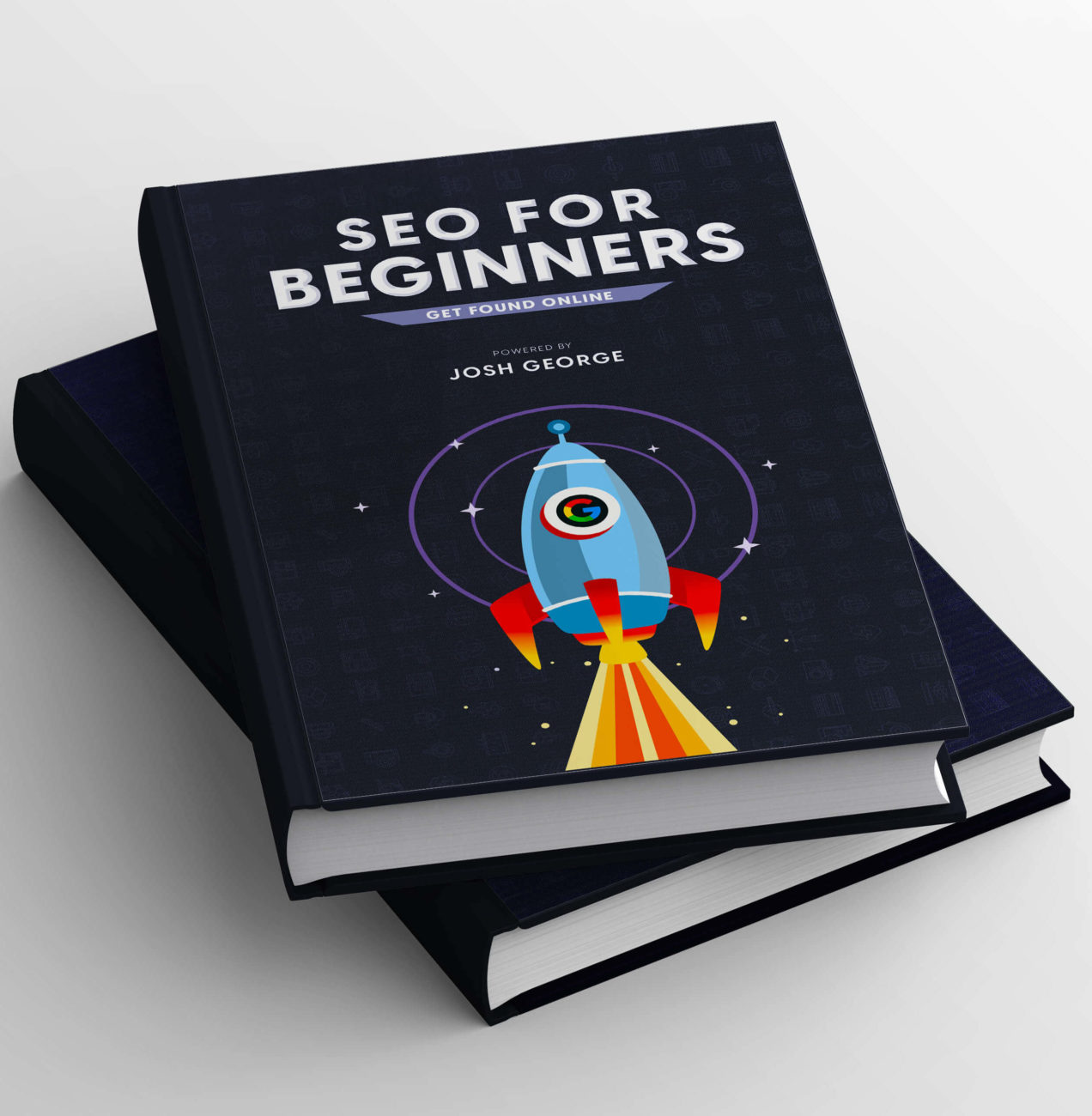At the heart of search engine optimization (SEO) is keyword research.
It sounds simple enough to do on paper—find phrases that people look for on search engines and optimize for them on your site. But you can’t just do that and expect your website to rank on top of Google search every single time.
There’s a lot more involved in the keyword research process, and the bulk of it has to do with knowing the exact factors you need to consider in your research. From here, you’d be able to discern whether or not you should try and rank for a particular keyword or not.
This post helps you choose the right keywords by identifying the most important factors and how you can extract them from your research. In the end, we will synthesize all the factors mentioned to help refine your method of SEO keyword research.
Relevant
This factor determines how closely related a keyword is to your topic. The closer it is, the more reason you should try and rank for it on your website.
When it comes to keyword research tools, Google search is arguably the best one out there. A simple query will show you data on search engine results pages (SERPs) that will help you refine your search immediately.
There are different sections on Google search when you can extract keyword ideas for your topic. The first one is its autocomplete feature. You can see this when you’re typing the topic or seed keyword on the search bar.
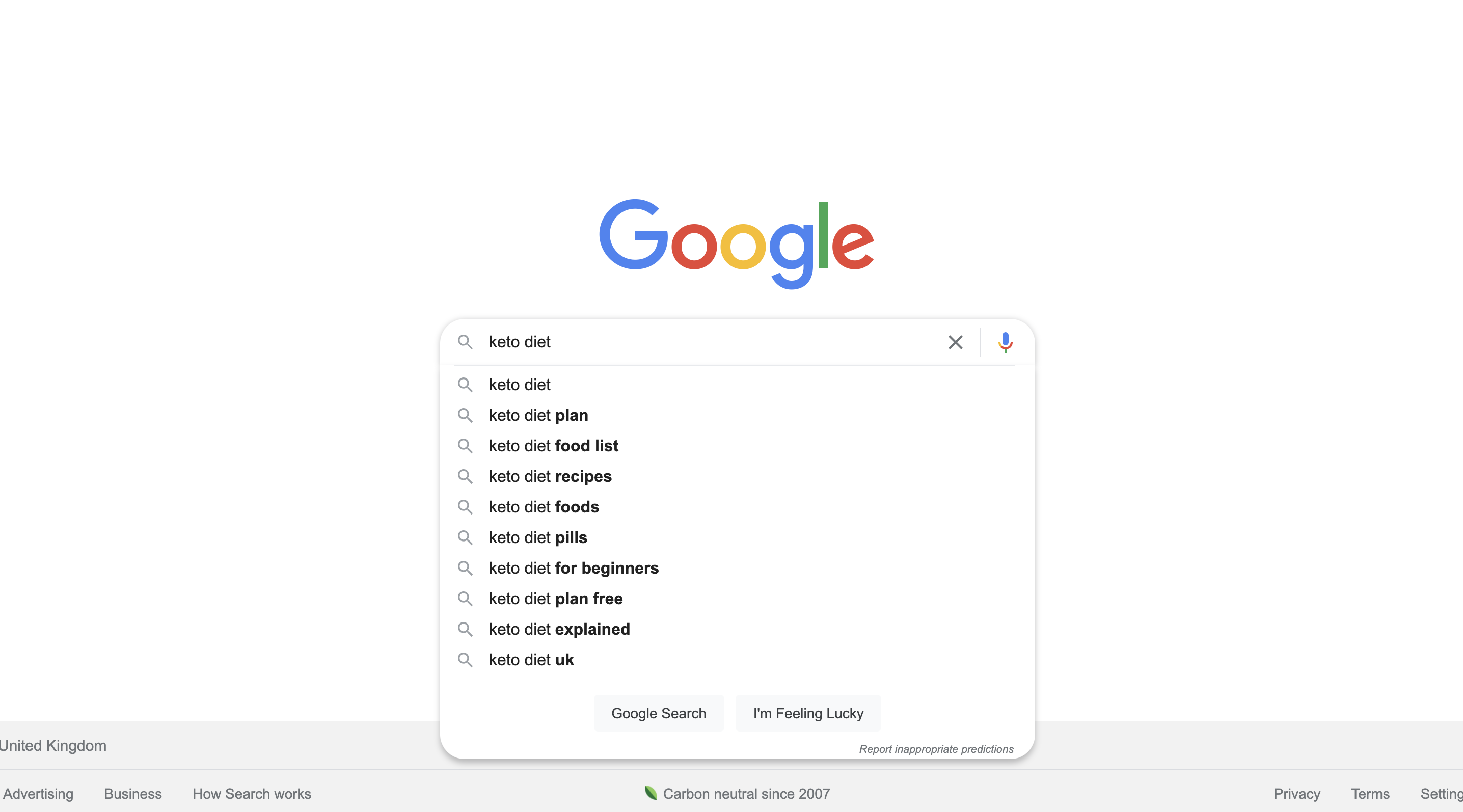
Google tries to predict queries you may be trying to search for. As a result, it shows you the most relevant search terms for the topic.
Once you’re on SERPs, you can find keyword ideas in the People Also Ask (PAA) section. Not all queries will have this section, but if it does, it will look like this:
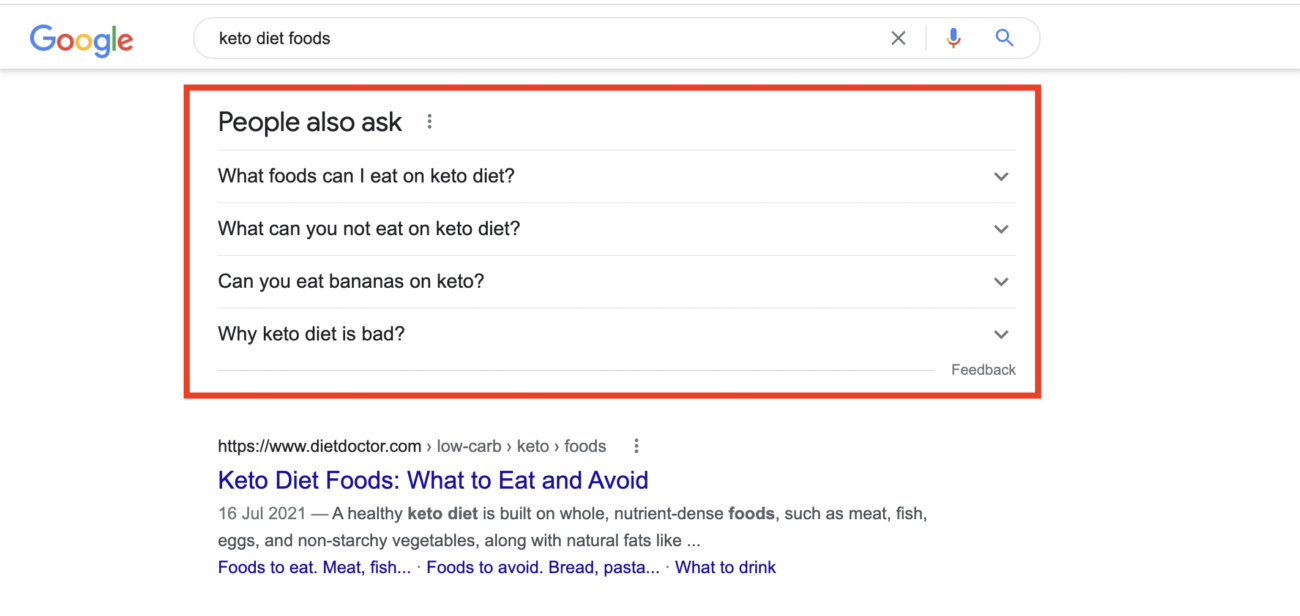
If your keyword is too broad, you can create content that answers the specific questions found here.
Finally, the Related Searches found at the bottom could further expand your keyword research.
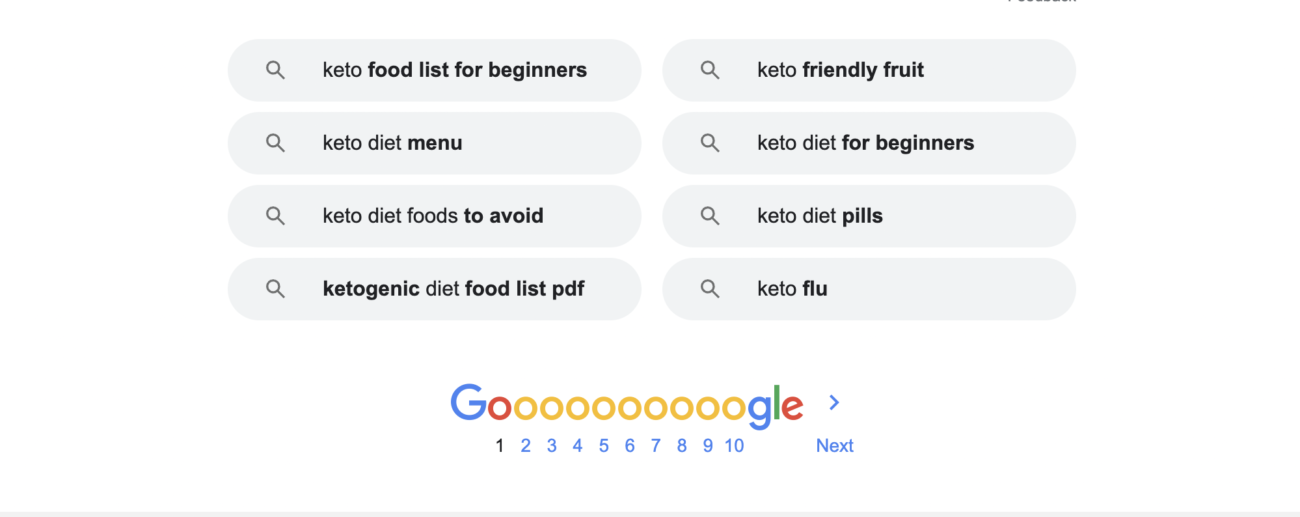
There are times that the Related Searches section will show you the same keywords found in the autocomplete section. But if not, you can click on any of these keywords to branch off and find more keyword ideas you can optimize for your site.
Appropriate Search Intent
When researching for keywords, you have to ask why users are looking for them on search engines. Just as important, you need to know what they want search engines to show them on SERPs.
Search intent is an aspect of keyword research that is concerned with both questions. By answering these questions, you would be able to create content that satisfies user expectations. At the same time, search engines will reward your site by helping you rank higher on search results.
In your research, there are three types of search intent you need to be mindful of: navigational, informational, and transactional.
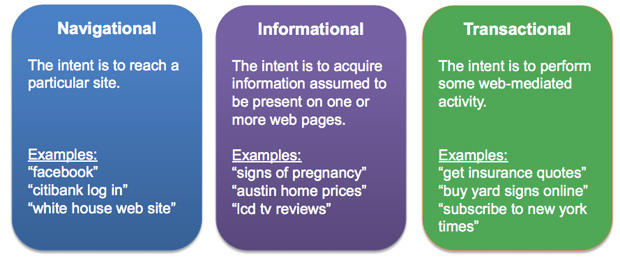
At this point in your SEO, you should concern yourself with walking the tightrope between informational and transactional keywords. Ideally, you want to optimize for keywords with transactional intent because there’s a higher chance of converting visitors into customers and increasing your sales.
However, the latest link spam algorithm update discourages sites from creating review and affiliate sites geared towards sales. This is another way of Google saying that you need to create content optimized for keywords with informational intent.
This way, you’re able to provide value to your target audience first and earn their trust first, which paves the way for higher conversions and revenue in the future.
To help you find informational keywords aside from the PAA section on SERPs, use the keyword research tool Answer the Public and type in your topic there.
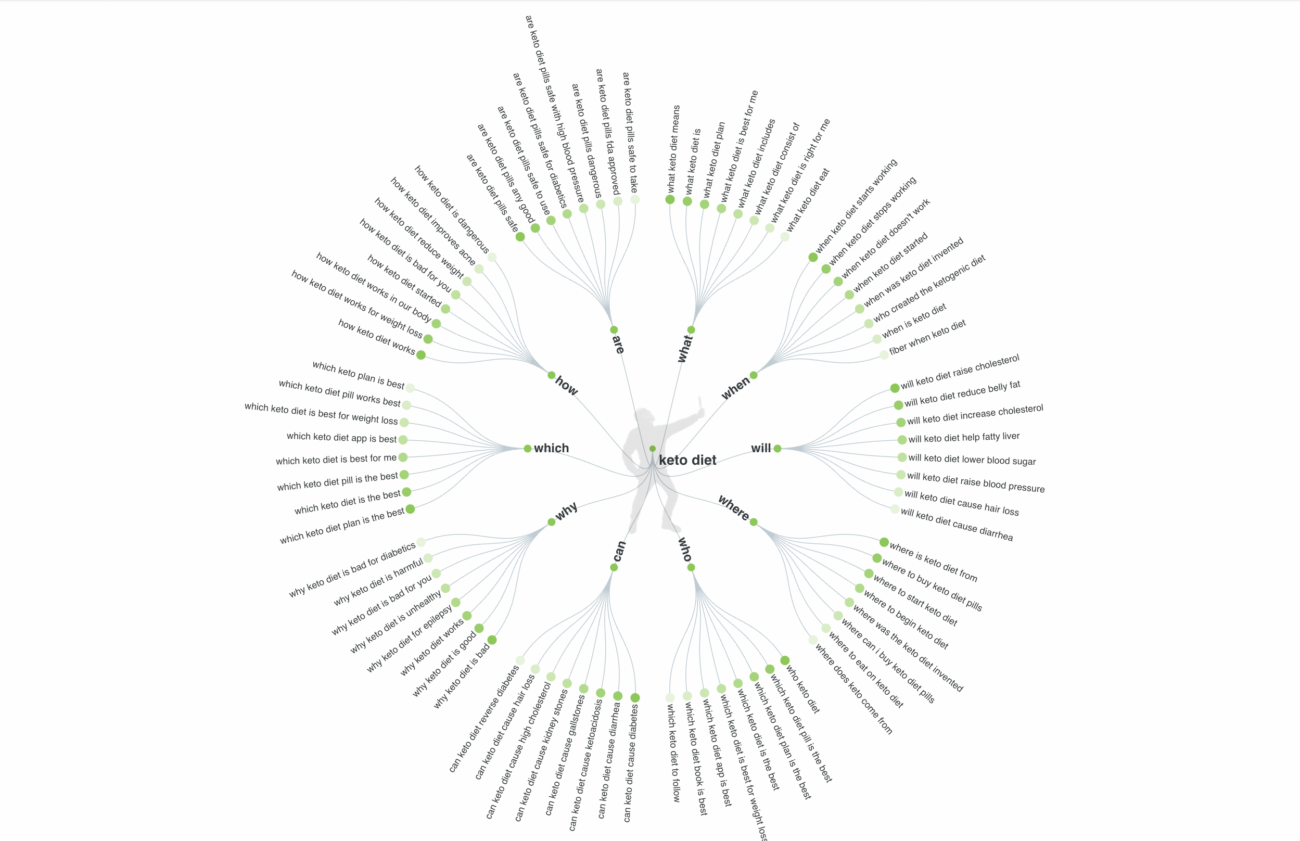
You should then be able to see questions and long-tail keywords that you can use to create content for your website.
High Search Volume
As mentioned above, you need to find keywords that people search for online. Even if your site is ranking on top of SERPs, it won’t matter if nobody is searching for the keyword phrase your site is optimized for.
This is why you should highly consider finding high-volume keywords. You can find them using Google Keyword Planner for starters. It’s a free tool that shows you keyword suggestions and the monthly search volume of each.
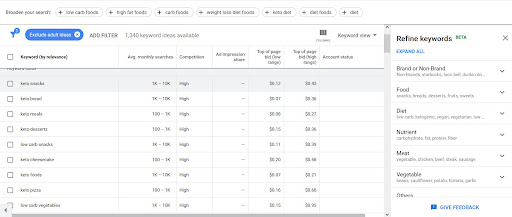
You can use this tool to find the search volume data of the keywords you already found from your initial research.
The only issue with Google Keyword Planner is that it only shows you the range of search volumes and not the approximate number of searches in a month.
Low Keyword Difficulty
Keyword difficulty (KD) pertains to how easy or hard it is to rank for a keyword. Each keyword tool has this metric that calculates the SEO metrics of the top-ranking pages for a keyword. The higher the score, the more challenging it’ll be for you to rank for the term.
Premium keyword research tools like Ahrefs have a keyword difficulty score to help you filter out keywords you should optimize from the ones you shouldn’t.
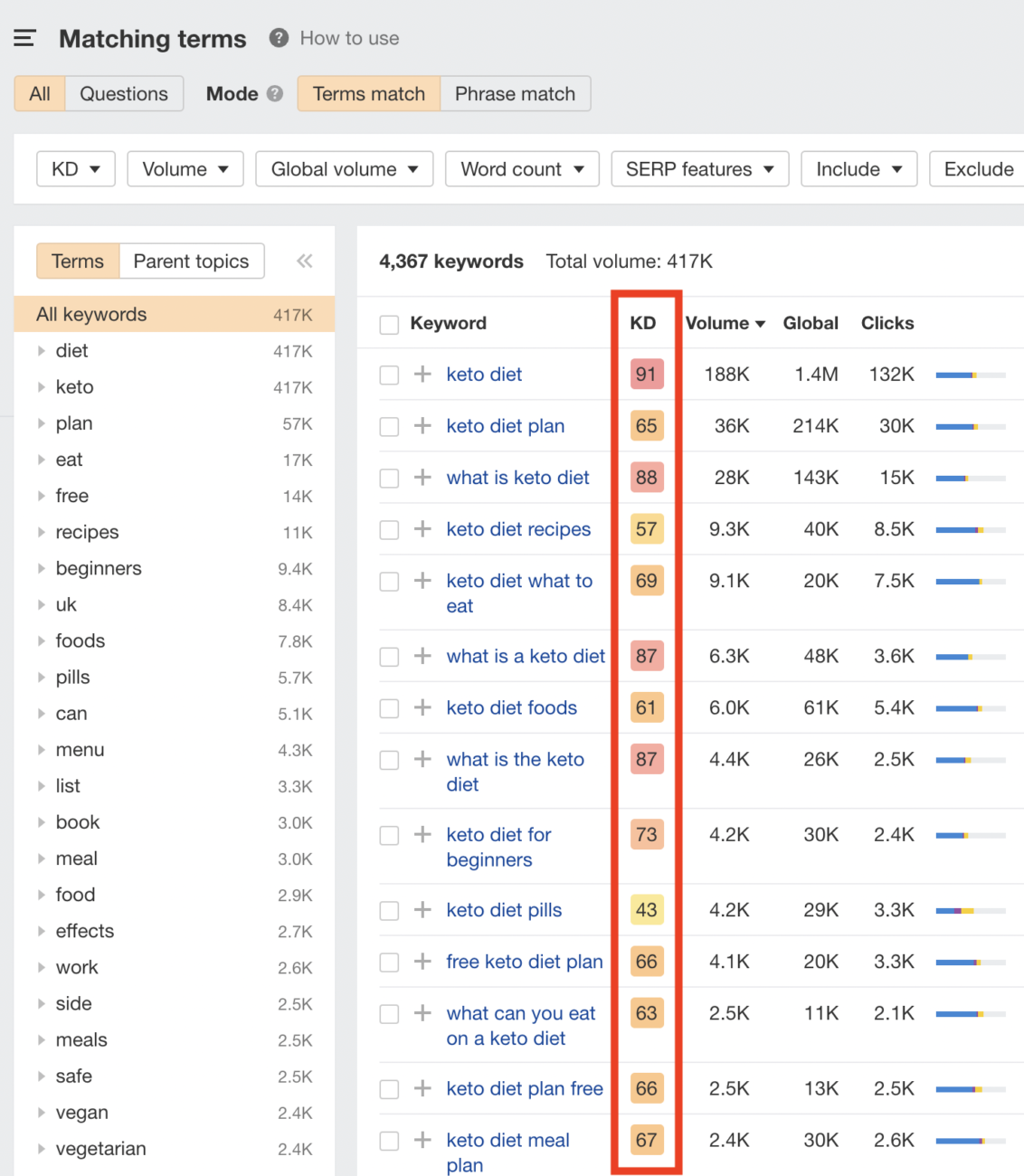
As one of the best SEO tools out there, Ahrefs also lets you type in your seed keywords and find a comprehensive keyword list organized into types. This helps speed up your research process even more.
KD helps you expedite the keyword research process, so you don’t have to manually check if it’s worth the effort to rank for a term. However, keep in mind that keyword difficulty scores should never be the be-and-end-all when researching for keywords. Just because a keyword has a high KD doesn’t always mean you shouldn’t try and rank for it.
Putting It All Together: SEO Avalanche Theory
Now that you know the factors that you should consider in your keyword research, it’s time to put them all together in a repeatable process. It should help you determine which exact target keywords to optimize for so you don’t feel lost and wonder why you’re not ranking for your keyword phrases.
A process you could replicate in your website is the SEO Avalanche Technique by Chris Carter over at Builder Society. In a nutshell, the theory states that you should optimize for search queries with search volumes in line with your site’s tier
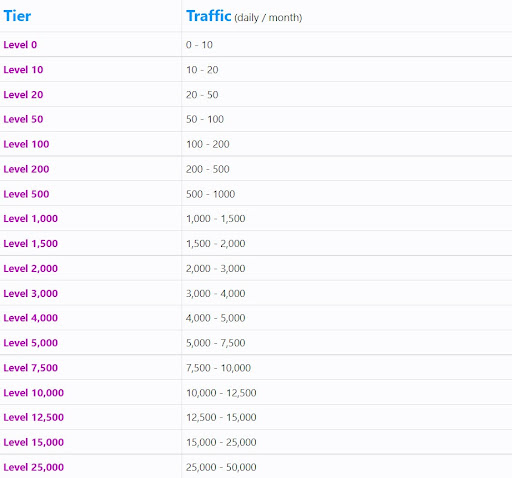
For example, if your site is in level 50, it means it’s attracting 50-100 organic visitors a month, which means you should search for keywords with a search volume between 50 to 100. From here, find all related keywords about your topic and optimize for each one. Don’t also forget to consider the KD score of each so you can rank faster for keywords with low difficulty.
You can scale up your ranking faster by targeting keywords within your tier level instead of optimizing for keywords beyond your level. And once you move up a tier, you can unlock more keywords to work on your site.
It’s a simple but sustainable process that will help you make sense of your keyword research workflow. Finding search terms using this framework and following the factors above, you should find the right keywords to boost your SEO rankings.



